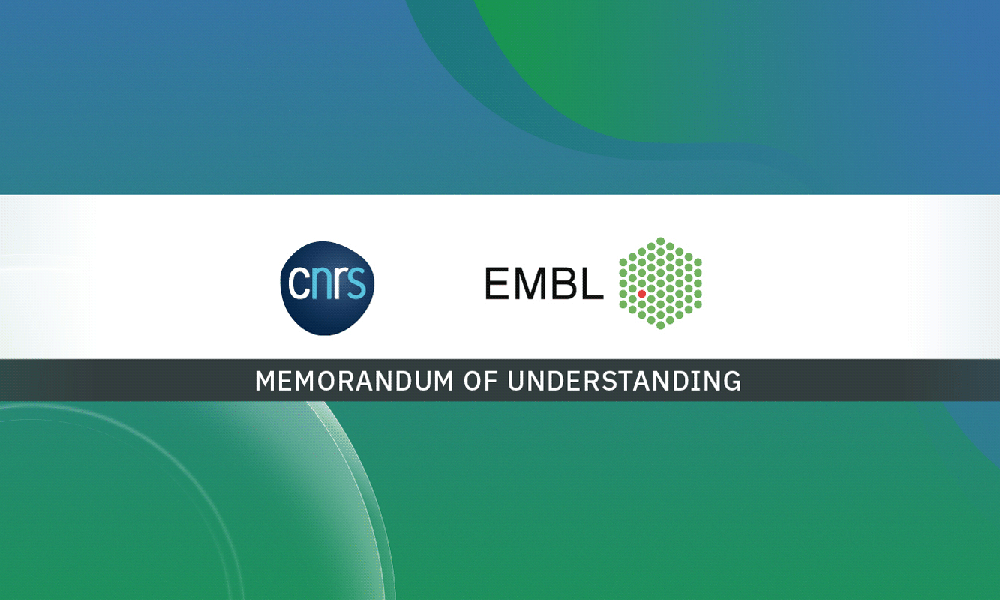EMBL and the French National Centre for Scientific Research (CNRS) signed a memorandum of understanding

Planetary biology, marine biology, microbial ecosystems, human ecosystems, ecology, and environmental sciences - these cross-disciplinary topics are the focus of the memorandum of understanding (MoU) recently signed by EMBL and the French National Centre for Scientific Research (CNRS).
With environmental challenges becoming more relevant to human health and ecosystems, multidisciplinary research with relevance to the focus areas of the MoU will be at the heart of the collaboration between EMBL and the CNRS. The French interdisciplinary public research organisation is among the world's leading scientific institutions.
Scientists at EMBL and at the CNRS laboratories have already established a number of connections and collaborations in the past few decades. The MoU aims to strengthen these links.
"This collaboration between EMBL and the CNRS will facilitate bringing together the right people to research human and planetary health," said EMBL Director General Edith Heard. "The future scientific plans of the CNRS and EMBL are well aligned, so we hope to drive forward European life sciences together."
EMBL's French site in Grenoble already cooperates with the Institut de Biologie Structurale (a laboratory jointly operated by the French Alternative Energies and Atomic Energy Commission CEA, the CNRS, and the Université Grenoble Alpes, UGA) through the Partnership for Structural Biology. The partnership was created together with the European Synchrotron Radiation Facility and the Institut Laue-Langevin on the European Photon and Neutron science campus.
In addition, EMBL Grenoble has been building scientific collaborations with the Grenoble-based Institute of Advanced Biosciences (IAB, a laboratory jointly operated by the CNRS, Inserm, and UGA) for more than 15 years. This strong connection was also recently reinforced with an MoU between IAB and EMBL to expand collaboration across EMBL sites.
Furthermore, connections with two more institutes of the CNRS - the Institute of Biological Sciences (INSB) and the Institute of Ecology and Environment (INEE) - have been established through the collaboration with Tara Oceans, which was initiated by former EMBL Group Leader and the CNRS Director of Research Eric Karsenti.
This new MoU between EMBL and the CNRS is therefore part of a natural process to establish a cross-organisation collaboration in research, scientific services, and training.
"This agreement establishes prospects for collaboration that break with previous programmes and targets new scales of investigation to better address the complexity of biological interactions in a changing environment," said Antoine Petit, Chairman and Chief Executive Officer of the CNRS.






